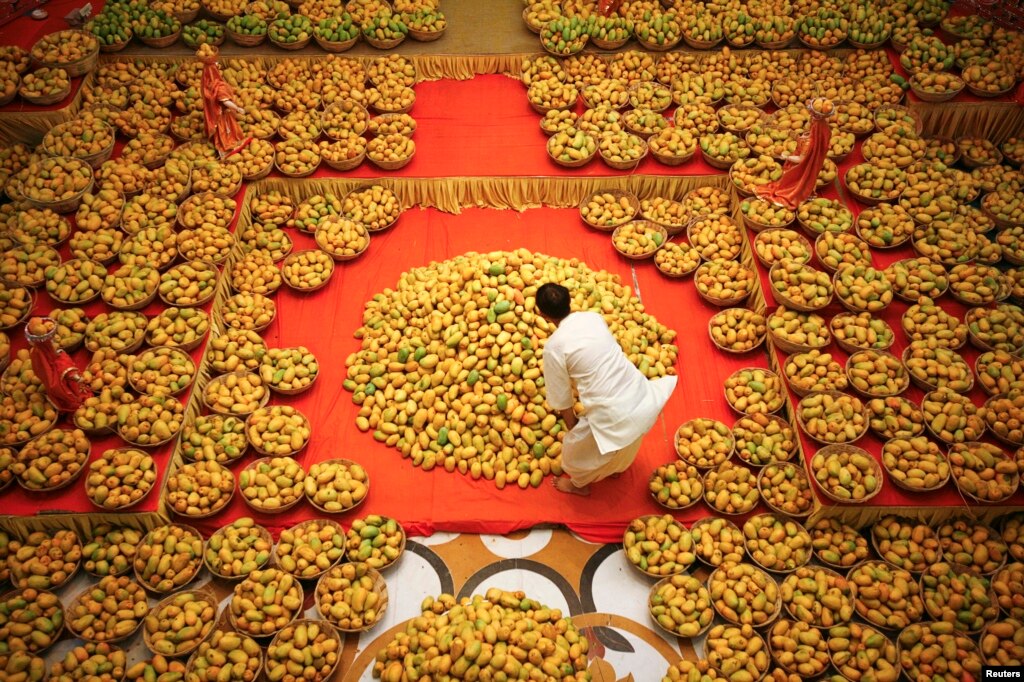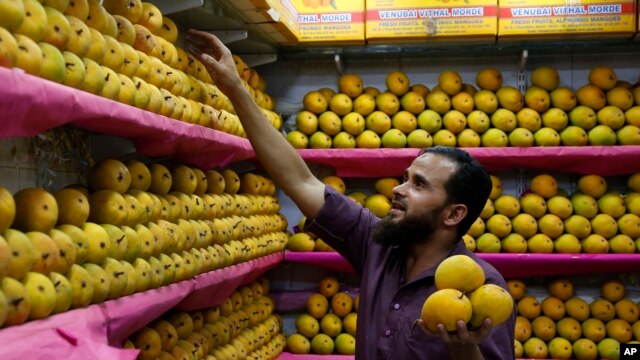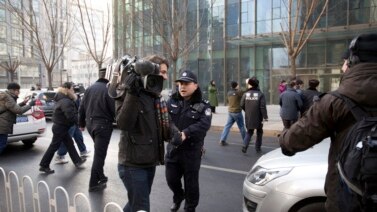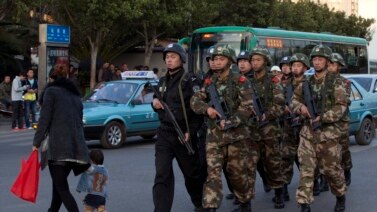
From VOA Learning English this is As It Is! I’m Anna Matteo in Washington.
India and the European Union are involved in a heated trade fight over mangoes. The EU banned them. But most people in India are not complaining. The ban has led to a flood of mangoes in local Indian markets and a sharp drop in prices.
Prices for one kind, the Alphonso mango, have crashed, or fallen fast and far. This type of mango is usually so costly that it is out of reach for middle-class households.
Purnima Dhir in New Delhi had stocked up on vegetables and fruits during the weekend. But after reading reports that prices of the prized Alphonso mango had crashed, she rushed back to a supermarket to buy more or as she puts it, to get her fill.
“I am absolutely delighted. We can have our fill of it, I can’t believe it.”
Ms. Dhir can thank a tiny fruit fly. The European Union imposed an 18-month ban on Indian mangoes along with a few other vegetables after finding fruit flies in some of the produce.
When the ban went into effect on May 1th , prices of the Alphonso mango fell to their lowest level in nearly 20 years. They are selling at about $ 2.50 to $ 4 per kilogram, which is half their usual price.

The juicy, sweet mango is a popular treat during the scorching summer heat on the Indian plains. There are several kinds of mangoes.
But the Alphonso mango is known as “The King of Mangoes.” It is popular from Japan to Europe. As it usually happens, its popularity raised the price and forced most Indians to look for more affordable varieties.
While shoppers in India are enjoying the surplus of Alphonso mangos, exporters having a difference experience. The ban is hitting them hard and directly affecting their profits.
Sanjay Pansare is a director at the Agriculture Produce Market Committee in Mumbai, the center of the mango trade. And he is concerned that the ban could affect the mango market for a long time.
“We are not worried about the prices, what we are worried is we are going to lose the European market. That is the main problem.”
Exporters are already counting their losses. Bharat Pawar is the manager of Shree Ganesh Fruit Stall in Mumbai. He says at least half his export orders have been cancelled. He is now selling in the local market.
Officials in New Delhi have asked the European Union to reconsider the ban. They have even threatened to take the issue to the World Trade Organization.
This is not the first time that the mango has been involved in high-level diplomacy. Indian officials often give the prized fruit to foreign leaders.

And in 2006 India and the U.S. struck what is now known as the “mangos for bikes deal.” New Delhi reportedly permitted Harley Davidson motorcycle imports in exchange for lifting an 18-year ban on mango imports by the United States.
I’m Anna Matteo.
What food ban would most affect you? And do you have a favorite mango recipe? Tell us in the comment section! Or just practice with the vocabulary you learned in the article -- words like “ban” and “surplus.”





